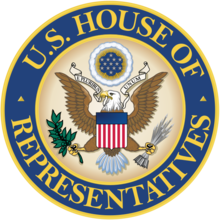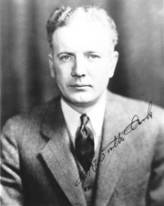States with the Longest US House Special Election Droughts
Idaho has not hosted a special election to the House in its 122 years since statehood; Delaware last held one during the McKinley administration with Utah and New Hampshire during the Hoover years

Special elections are frequently cast by the media as barometers for the next cycle or as a referendum on the presidential administration – even, at times, when the seats are not particularly competitive.
Special elections are conducted for a variety of reasons – the death of the representative (Donald Payne, NJ-10, 2012), a resignation due to scandal (Anthony Weiner, NY-09, 2011), or resigning to take a different position in (Dean Heller, NV-02, 2011) or out (Jane Harman, CA-36, 2011) of elected office.
In the spotlight this week is the special election to South Carolina’s 1st CD seat on Tuesday between Democrat Elizabeth Colbert Busch, Republican Mark Sanford, and the Green Party’s Eugene Platt.
This marks the first such contest in 11+ years in the Palmetto State.
And while that may not seem like a long time, 25 other states have had at least one special election since the last time South Carolina hosted such a race (a 2nd CD contest on December 18, 2001 won by GOP Representative Joe Wilson).
But the waiting period in South Carolina has not been nearly as long as in some states.
Eight states have not had the special election spotlight shined on them in contests for the nation’s lower legislative chamber in at least 50 years.
And one state has yet to conduct a special election in its history.
A Smart Politics analysis finds that Idaho has compiled the longest period in the nation without hosting a special election to the House of Representatives at 122 years since statehood and counting.
Idaho’s first U.S. Representative elected after achieving statehood in July 1890 was Republican Willis Sweet who served the at-large district until March 1895.
For the next 122 years since Sweet’s first electoral victory, the Gem State has yet to conduct a special election for this office both through its varying periods of one at-large seat (1890-1913), two at-large seats (1913-1919), and its current configuration of two congressional districts (1919-present).
Even on the rare occasions when Idaho has suffered a death or resignation in its U.S. House delegation, there has been no special election to fill the seat.
For example, in June 1934 Democratic Thomas Coffin died during his first term in the chamber.
Despite nearly seven months remaining in the 73rd Congress, Coffin’s seat remained vacant for the rest of the unexpired term.

A decade later, four-term Republican U.S. Representative Henry Dworshak resigned his House seat on November 5, 1946, having just been elected to the Senate (in a special election to that seat).
With less than two months remaining of his unexpired House term, no special election was held and the seat stayed vacant throughout the remainder of the 79th Congress.
Idaho’s string of 122+ years without a special election eclipses the second longest current stretch in the nation by more than a decade: Delaware’s last such contest took place 112 years ago in November 1900 after the death of one-term Republican Rep. John Hoffecker.
Hoffecker’s son, Walter, won the special election to Delaware’s at-large seat and served out the remaining four months of his father’s unexpired term.
Idaho’s neighbor to the south Utah ranks third on the list with its last special election to the House coming on November 4, 1930, or 82+ years ago.
Five-term Republican Elmer Leatherwood died in office in December 1929 and the seat remained vacant for nearly a year before a special election was held in November 1930.
GOPer Frederick Loofbourow won that race as well as the race for the full term beginning March 1931. He took Leatherwood’s vacant seat on December 1, 1930.
New Hampshire ranks a close fourth behind Utah with its last special election conducted 81 years ago on January 5, 1932.
Kansas (#5, 1950), Maine (#6, 1951), Nebraska (#7, 1951), and Iowa (#8, 1959) are the remaining four states to have last hosted a special election to the U.S. House more than 50 years ago.
(Note: When Kansas U.S. Representative Sam Brownback won a special election to Bob Dole’s U.S. Senate seat in November 1996, Republican Jim Ryun was elected simultaneously to the unexpired term to Brownback’s U.S. House seat as well as for the election for the regular term. As per Kansas Stat 25-3503 [d] a separate special election was not conducted for this unexpired seat).
Rounding out the Top 10 are North Dakota (1963) and Rhode Island (1967).
Although Idaho has gone the most years without a special election, it actually ranks #4 in terms of the largest number of consecutive U.S. House races without one.
Iowa is tops on this list, coming in at 157 straight U.S. House contests since its last special election was held.
The last time the Hawkeye State held a special election to the nation’s lower legislative chamber was 53+ years ago when John Kyl won Iowa’s 4th CD race. (Kyl is the father of former Arizona U.S. Representative and Senator Jon Kyl).
The race was held to fill the vacancy caused by the death of one-term Democrat Steven V. Carter one month prior.
Kansas has the second longest streak at 149 consecutive races without a special election followed by Minnesota at #3 with 144, Idaho in fourth at 120, and Tennessee at #5 with 108.
Rounding out the Top 10 are Texas at #6 (100 consecutive races), Utah at #7 (99), Nebraska at #8 (98), Colorado at #9 (96), and Alabama and Wisconsin tied at #10 (84 each).
Longest Period Since Last U.S. House Special Election by State
|
Rank
|
State
|
Date
|
District
|
# Races
|
Years
|
|
1
|
Idaho
|
(none)
|
N/A
|
120
|
122
|
|
2
|
Delaware
|
November 6, 1900
|
AL
|
56
|
112
|
|
3
|
Utah
|
November 4, 1930
|
2
|
99
|
82
|
|
4
|
New Hampshire
|
January 5, 1932
|
1
|
82
|
81
|
|
5
|
Kansas
|
November 7, 1950
|
3
|
149
|
62
|
|
6
|
Maine
|
October 22, 1951
|
3
|
67
|
61
|
|
7
|
Nebraska
|
December 4, 1951
|
3
|
98
|
61
|
|
8
|
Iowa
|
December 15, 1959
|
4
|
157
|
53
|
|
9
|
North Dakota
|
October 22, 1963
|
AL
|
29
|
49
|
|
10
|
Rhode Island
|
March 28, 1967
|
2
|
46
|
46
|
|
11
|
Montana
|
June 24, 1969
|
2
|
33
|
43
|
|
12
|
Vermont
|
January 7, 1972
|
AL
|
21
|
41
|
|
13
|
Alaska
|
March 6, 1973
|
AL
|
20
|
40
|
|
14
|
Minnesota
|
February 22, 1977
|
7
|
144
|
36
|
|
15
|
West Virginia
|
June 3, 1980
|
3
|
57
|
32
|
|
16
|
Colorado
|
March 29, 1983
|
6
|
96
|
30
|
|
17
|
Connecticut
|
August 18, 1987
|
4
|
72
|
25
|
|
18
|
Tennessee
|
November 8, 1988
|
2
|
108
|
24
|
|
19
|
Alabama
|
April 4, 1989
|
3
|
84
|
24
|
|
20
|
Wyoming
|
April 26, 1989
|
AL
|
12
|
24
|
|
21
|
Wisconsin
|
May 4, 1993
|
1
|
84
|
20
|
|
22
|
Missouri*
|
November 5, 1996
|
8
|
71
|
16
|
|
23
|
New Mexico
|
June 23, 1998
|
1
|
24
|
14
|
|
24
|
Arkansas
|
January 20, 2001
|
3
|
24
|
12
|
|
25
|
South Carolina**
|
December 18, 2001
|
2
|
37
|
11
|
|
26
|
Oklahoma
|
January 8, 2002
|
1
|
30
|
11
|
|
27
|
South Dakota
|
June 1, 2004
|
AL
|
5
|
8
|
|
28
|
North Carolina
|
July 20, 2004
|
1
|
65
|
8
|
|
29
|
Texas
|
November 7, 2006
|
22
|
100
|
6
|
|
30
|
Massachusetts
|
October 16, 2007
|
5
|
29
|
5
|
|
31
|
Virginia
|
December 11, 2007
|
1
|
33
|
5
|
|
32
|
Louisiana
|
May 3, 2008
|
1, 6
|
20
|
5
|
|
33
|
Mississippi
|
May 13, 2008
|
1
|
12
|
4
|
|
34
|
Maryland
|
June 17, 2008
|
4
|
24
|
4
|
|
35
|
Ohio
|
November 18, 2008
|
11
|
34
|
4
|
|
36
|
Florida
|
April 13, 2010
|
19
|
52
|
3
|
|
37
|
Pennsylvania
|
May 18, 2010
|
12
|
37
|
2
|
|
38
|
Hawaii
|
May 22, 2010
|
1
|
4
|
2
|
|
39
|
Georgia
|
June 8, 2010
|
9
|
27
|
2
|
|
40
|
Indiana
|
November 2, 2010
|
3
|
9
|
2
|
|
41
|
California
|
July 12, 2011
|
36
|
53
|
1
|
|
42
|
Nevada
|
September 13, 2011
|
2
|
4
|
1
|
|
42
|
New York
|
September 13, 2011
|
9
|
27
|
1
|
|
44
|
Oregon
|
January 31, 2012
|
1
|
5
|
1
|
|
45
|
Arizona
|
June 12, 2012
|
8
|
9
|
0
|
|
46
|
Kentucky
|
November 6, 2012
|
4
|
0
|
0
|
|
46
|
Michigan
|
November 6, 2012
|
11
|
0
|
0
|
|
46
|
New Jersey
|
November 6, 2012
|
10
|
0
|
0
|
|
46
|
Washington
|
November 6, 2012
|
1
|
0
|
0
|
|
50
|
Illinois
|
April 9, 2013
|
2
|
0
|
0
|
* Special election in South Carolina to be conducted on May 7, 2013 for the 1st CD. ** Special election in Missouri to be conducted on June 4, 2013 for the 8th CD. Table compiled by Smart Politics.
Follow Smart Politics on Twitter.
